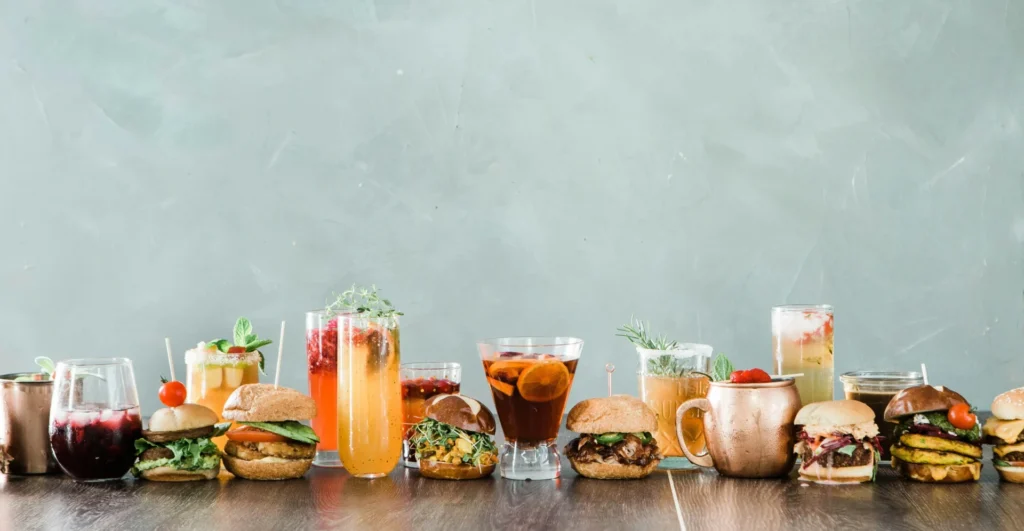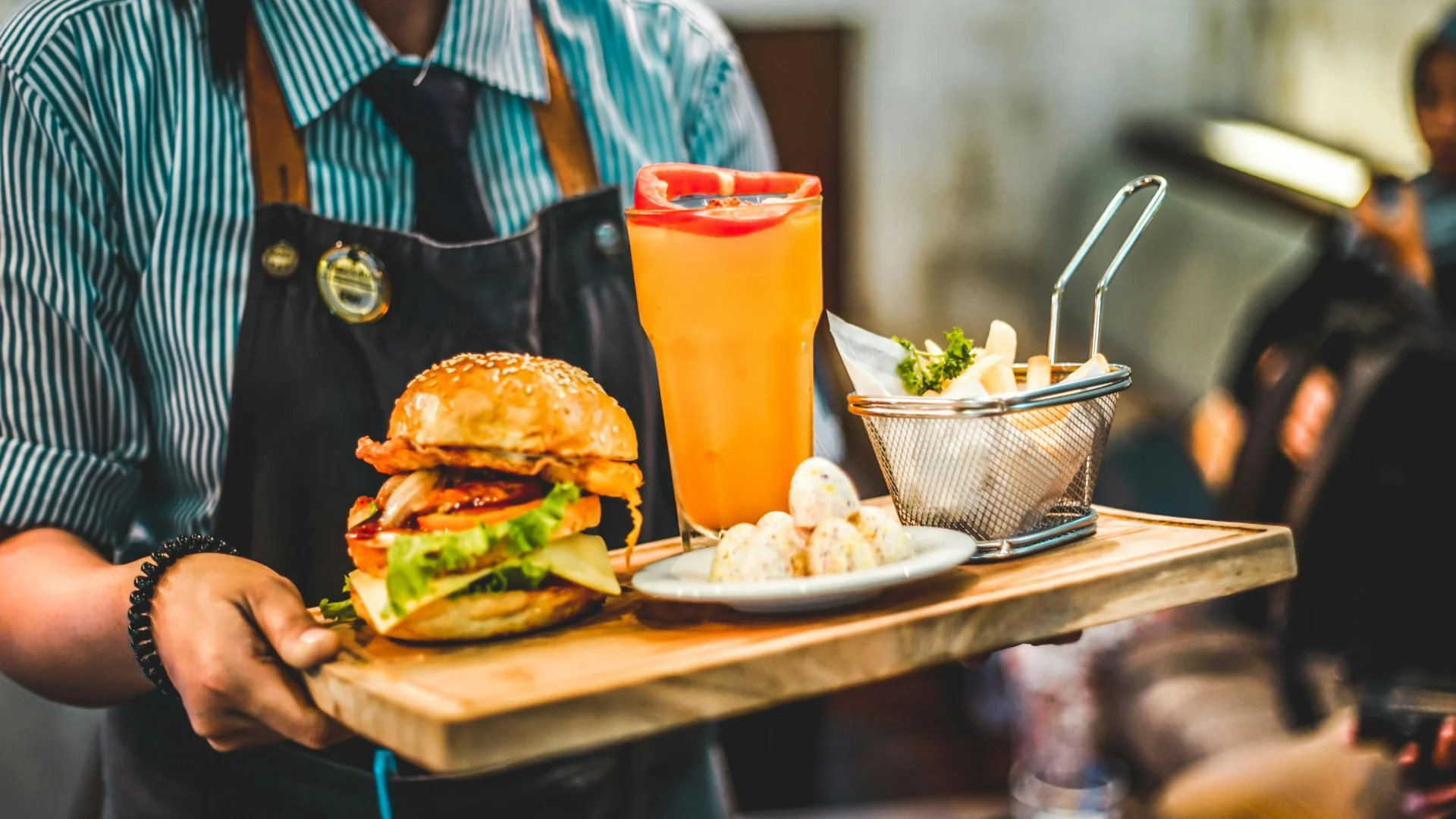The food and beverage industry is undergoing a transformation like never before. Driven by shifting consumer values, sustainability concerns, and rapid technological innovation, the landscape is constantly evolving. As a result, what once defined success in the market no longer applies. Among the most talked-about developments are the current trends in food and beverage marketing, which are setting the stage for bold new opportunities. From plant-based alternatives to AI-powered personalization, these shifts are more than just fads—they’re shaping the future. For businesses, the challenge lies in keeping pace while staying authentic.
To thrive in this fast-changing environment, companies must be both observant and proactive. Trends may emerge quickly, but the ability to adapt strategically ensures long-term relevance. Fortunately, understanding what’s driving consumer behavior provides a clear path forward. Whether it’s leveraging data analytics, embracing sustainable practices, or reinventing product lines, adaptability is key. Moreover, integrating these changes with a strong digital presence amplifies impact and reach. In this article, we’ll break down the most important shifts and how businesses can respond with confidence and creativity.
Consumer Values Reshaping the Industry
One of the most influential forces shaping the industry today is the shift in consumer values. People are becoming more intentional with what they eat, prioritizing wellness, ethics, and sustainability. This growing awareness has significantly impacted the current trends in food and beverage. As a result, brands are responding with transparency, cleaner labels, and functional ingredients. Furthermore, younger consumers are particularly drawn to companies with a strong social mission. Therefore, aligning brand identity designs with consumer values has become a necessity.
In parallel, the demand for authenticity is redefining product development and digital marketing for food and beverage. Consumers are no longer satisfied with generic offerings—they seek unique flavors, cultural depth, and meaningful stories. Consequently, niche brands that offer local or heritage-based foods are gaining traction. These movements reflect deeper behavioral shifts, which are now at the core of current trends in food and beverage. It is not simply about taste, but also about what a brand represents. To stay relevant, businesses must dig deeper into what truly resonates with their audience.
Lastly, trust has become a vital currency in today’s food industry. With the rise of misinformation and greenwashing, consumers demand proof of ethical sourcing and environmental responsibility. For businesses, third-party certifications and transparent practices are now essential. These components have become benchmarks of integrity within the current trends in food and beverage. When trust is established, loyalty and advocacy follow. Ultimately, it’s this bond that defines long-term success in the evolving marketplace.

The Rise of Plant-Based Choices
The plant-based movement has evolved from a niche to a mainstream powerhouse. Initially driven by health concerns, it is now bolstered by sustainability and ethical considerations. As plant-forward eating becomes a norm, it fuels several current trends in food and beverage. We are witnessing a broad spectrum of plant-based innovations—from meat substitutes to dairy-free desserts. This shift is not only changing how products are formulated but also how they’re marketed. Brands that embrace this evolution are capturing a larger, more diverse customer base.
Moreover, consumers now expect plant-based options that don’t compromise on flavor or texture. Technological advancements in food science have made this possible, resulting in products that closely mimic traditional animal-based foods. These innovations further validate the growing relevance of plant-based choices in current trends in food and beverage. Restaurants and retailers are expanding their offerings in response to this consistent demand. In turn, product diversity continues to accelerate consumer interest. The momentum shows no signs of slowing down.
On a strategic level, plant-based offerings are enabling businesses to future-proof their portfolios. With rising concerns about climate change and resource scarcity, these products align with long-term sustainability goals. At the same time, they allow brands to enter new markets with inclusive options for vegans, flexitarians, and allergy-sensitive consumers. The more inclusive a menu or product line becomes, the wider its appeal. Thus, adapting to these dietary preferences is no longer optional—it’s expected. The plant-based wave is undeniably shaping the next era of the industry.
Digital Dining and Changing Habits
Digital innovation continues to redefine how consumers discover, access, and enjoy food. From QR code menus to AI-powered delivery apps, technology is at the forefront of customer interaction. These developments are central to the current trends in food and beverage, especially in how convenience intersects with personalization. For instance, digital platforms now offer tailored recommendations based on past consumer behavior. This level of customization boosts both engagement and customer satisfaction. As expectations rise, seamless digital integration becomes essential.
Equally important is how data is leveraged for strategic insights. Businesses that use food and beverage data analytics to monitor consumer habits can identify opportunities for product refinement and new offerings. The role of digital tools in understanding current trends in food and beverage cannot be overstated. They provide real-time feedback loops that drive smarter decisions. This shift empowers brands to be more agile in a competitive market. Ultimately, data-driven strategies enhance both operational efficiency and customer loyalty.
Additionally, virtual experiences are entering the mainstream—from live cooking classes to immersive brand storytelling. These tools not only enhance brand visibility but also foster community and connection. As consumers crave engagement beyond transactions, digital platforms are stepping up. Such innovations are setting new standards in customer interaction and retention. Therefore, a strong digital presence is no longer just an asset—it’s a necessity. Embracing digital transformation is crucial to navigating the evolving industry landscape.
Sustainability Driving Food Innovation
Sustainability is no longer a niche concern—it is now central to business success. Consumers are demanding eco-friendly packaging, ethical sourcing, and carbon-conscious production. These demands are directly influencing the current trends in food and beverage. Brands that integrate sustainability into their core values are gaining customer trust and loyalty. In contrast, those that fail to act are facing backlash and declining relevance. Today, accountability matters just as much as quality.
Additionally, sustainability is influencing the entire value chain. From sourcing raw materials to managing food waste, every step is under scrutiny. Businesses are investing in circular systems and regenerative practices to meet these new standards. These changes are reflected in the current trends in food and beverage, as more companies commit to measurable environmental goals. Green certifications, carbon labeling, and zero-waste packaging are no longer extras—they’re expectations. Those leading in this space are setting the tone for the rest of the industry.
Moreover, sustainable innovation is not just about ethics—it’s a powerful market differentiator. Consumers are increasingly aligning their purchasing decisions with their environmental values. For businesses, this presents an opportunity to stand out through responsible leadership. By showcasing transparency and tangible impact, brands can foster deep customer loyalty. Sustainability, when executed authentically, becomes a long-term competitive advantage. It’s a direction that both the market and the planet demand.

Health Trends and Functional Foods
Health and wellness have shifted from trends to lifestyles, reshaping what people expect from their meals. Consumers now seek foods that offer benefits beyond basic nutrition—boosting immunity, supporting mental clarity, or enhancing gut health. This shift has become a cornerstone of the current trends in food and beverage. Brands are responding with an influx of products infused with adaptogens, probiotics, and superfoods. These functional foods are seen as preventive health tools rather than mere indulgences. As a result, wellness is becoming deeply embedded in everyday consumption.
Simultaneously, personalization in nutrition is on the rise. Consumers want options tailored to their unique health goals, allergies, and dietary needs. This demand reinforces the momentum of current trends in food and beverage, especially in the functional category. Technologies like DNA testing and wearable health trackers are making personalized nutrition more accessible. In turn, product development is evolving to meet this new level of specificity. As expectations shift, brands must offer both customization and efficacy.
Additionally, the appeal of functional foods is growing across all demographics. From protein-fortified snacks for athletes to calming teas for stressed professionals, these products are expanding into every niche. Importantly, food and beverage marketing must align with real benefits and scientific backing to maintain credibility. Transparency in ingredient sourcing and claims is now a baseline expectation. With so much at stake, businesses must balance innovation with integrity. Functional foods are proving to be more than a trend—they are the future of mindful eating.
Global Flavors Inspiring Innovation
Today’s food scene is more global than ever before. Consumers are increasingly adventurous, seeking bold flavors and authentic culinary experiences. These preferences are fueling the current trends in food and beverage by spotlighting global and fusion cuisines. Korean street food, Mediterranean mezze, and Southeast Asian spices are appearing on mainstream menus. This cultural curiosity is driving demand for both traditional dishes and creative crossovers. As a result, flavor diversity is becoming a major brand differentiator.
At the same time, storytelling is becoming just as important as taste. Consumers want to know the origins of the food they eat—who made it, where it’s from, and what it means. This cultural engagement has become an essential part of the current trends in food and beverage. By highlighting stories behind dishes, brands can deepen emotional connections with their audiences. This approach creates meaningful experiences, not just meals. Authentic representation is key to building trust and appreciation.
Furthermore, cultural fusion is inspiring innovation in both product development and dining experiences. Chefs and food entrepreneurs are blending traditional techniques with modern formats, appealing to a wide range of palates. From taco sushi to birria ramen, these creative combinations are gaining viral traction. They reflect a world where borders blur and creativity thrives. As fusion becomes the norm, cultural sensitivity must remain a priority. When done respectfully, global inspiration drives inclusivity and growth.
Final Thoughts
As the food and beverage landscape continues to evolve, one thing is certain: the industry is no longer defined by tradition alone. Rapid innovation, sustainability efforts, and changing consumer preferences have converged to reshape what success looks like. The current trends in food and beverage reflect deeper shifts in how people eat, connect, and live. From digital-first dining to a surge in plant-based and functional foods, staying ahead means more than just adapting—it means leading with purpose. Businesses that tune in to these shifts and act intentionally can cultivate deeper customer relationships and unlock new growth opportunities. The future of food is vibrant, global, and deeply personal.
Navigating this dynamic environment requires more than insight—it calls for strategic execution. That’s where fishbat can help. As a leading New York digital marketing company, we specialize in helping brands elevate their voice, connect with modern consumers, and translate trends into action. Whether you’re refining your social media presence or launching a new product, our team is here to craft strategies that deliver measurable results. Ready to grow your brand with confidence? Contact fishbat today at 855-347-4228 or hello@fishbat.com for a free consultation and discover how we can help your business thrive in the ever-changing world of food and beverage.


